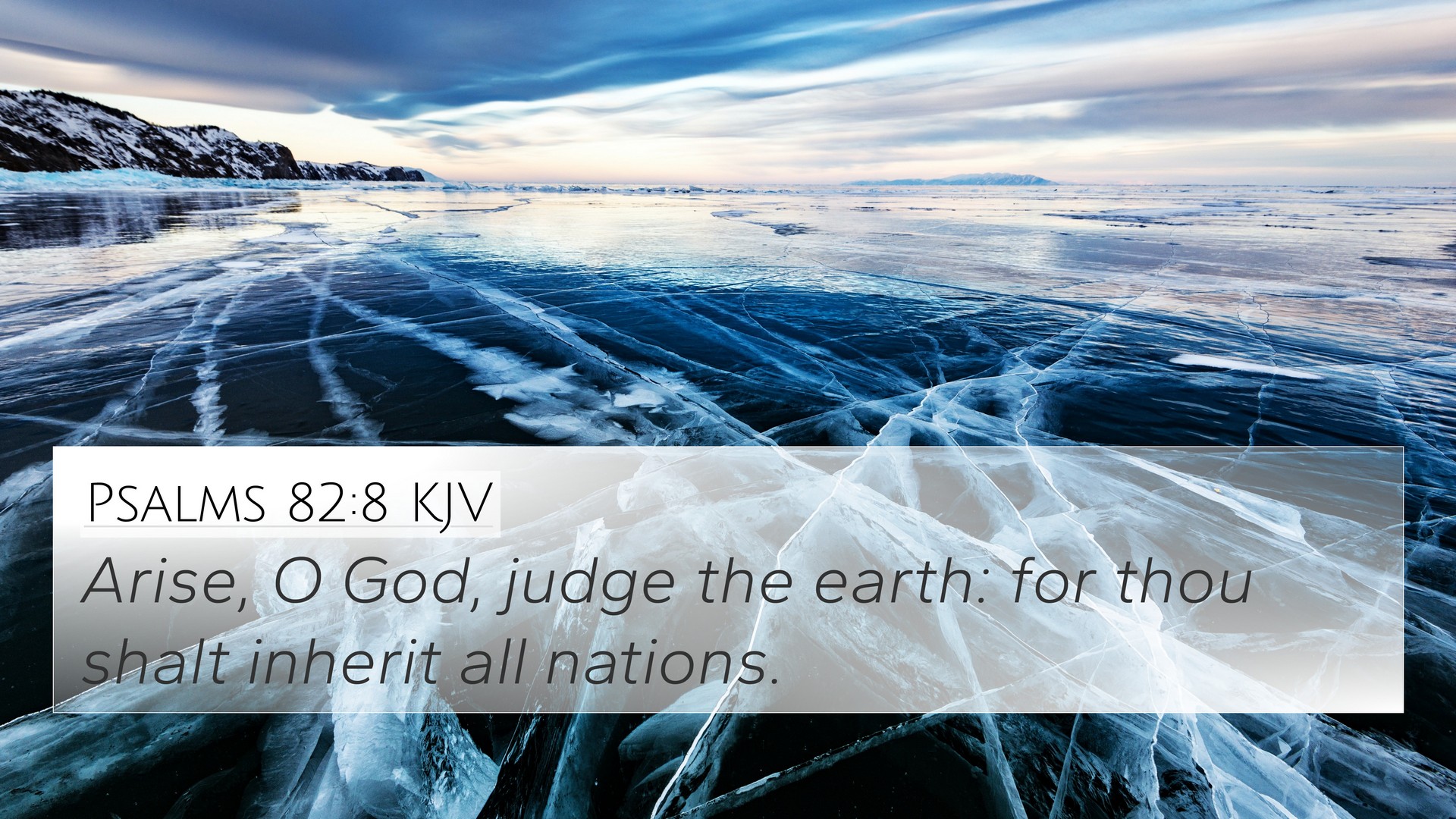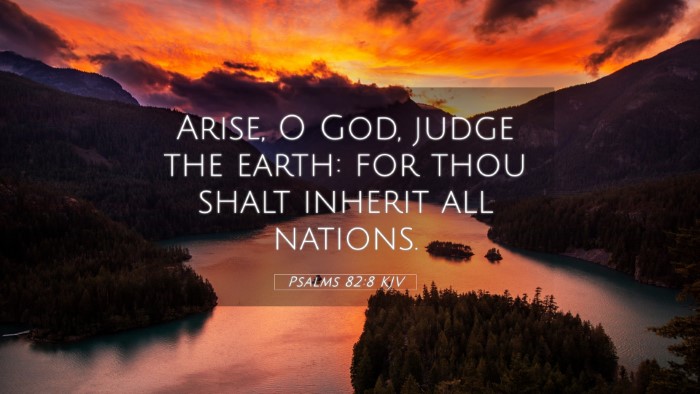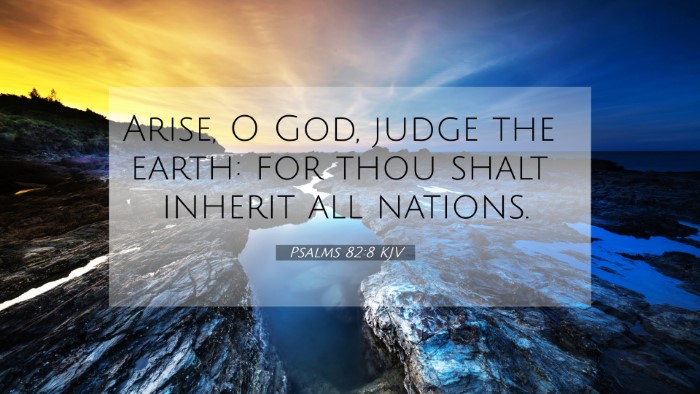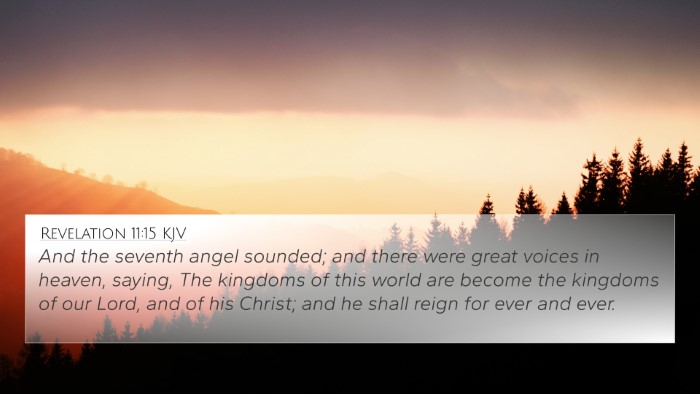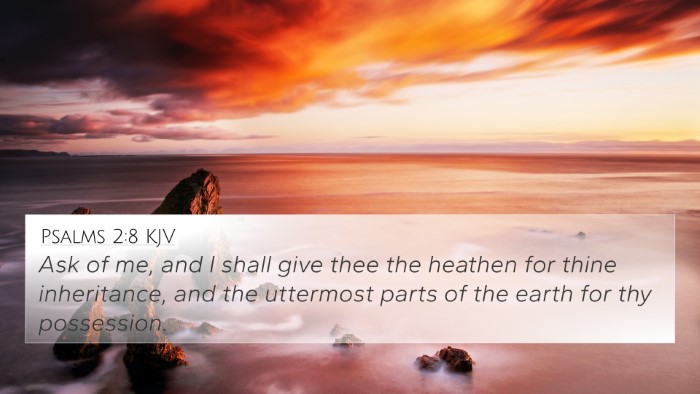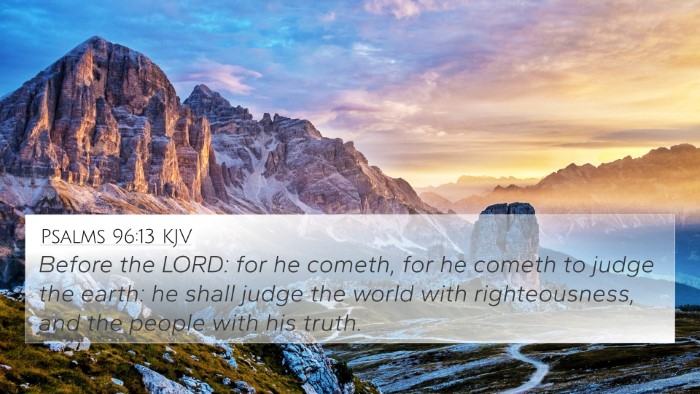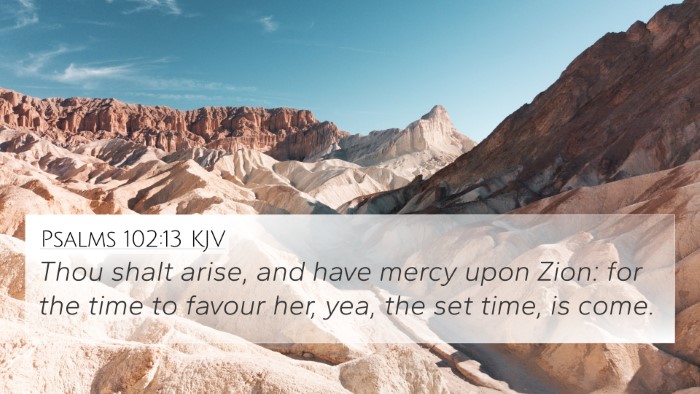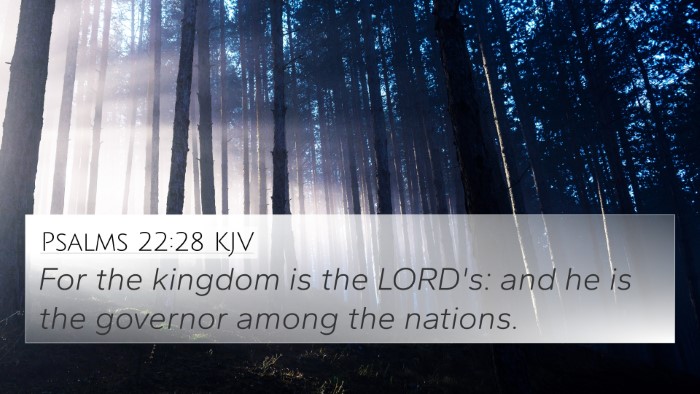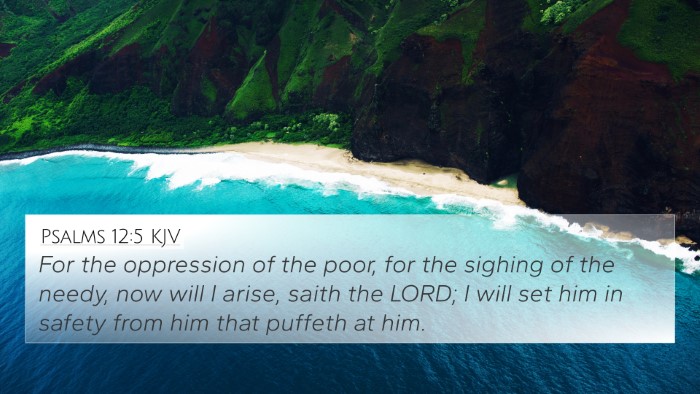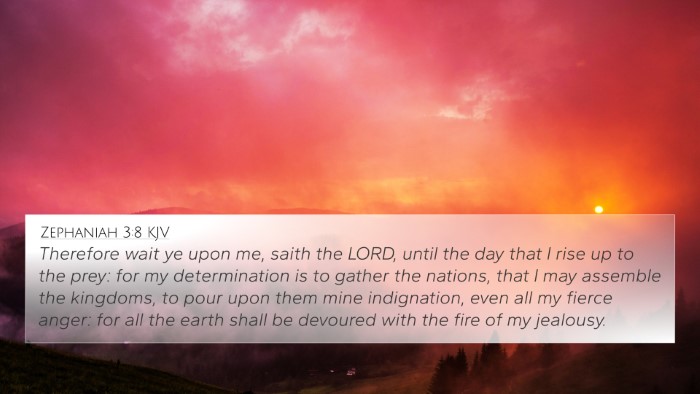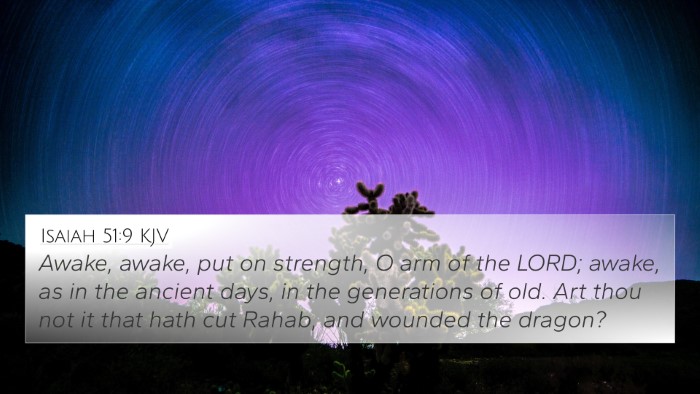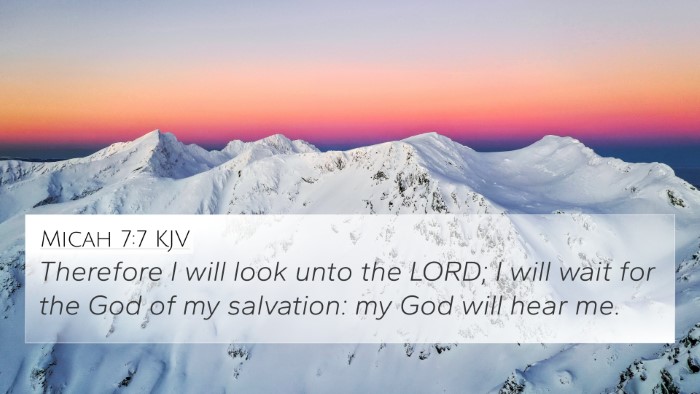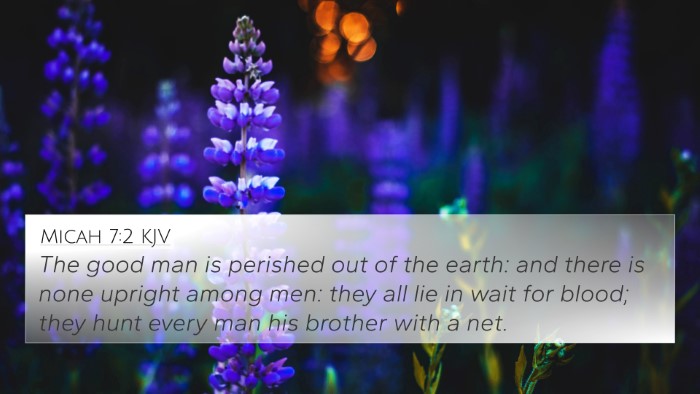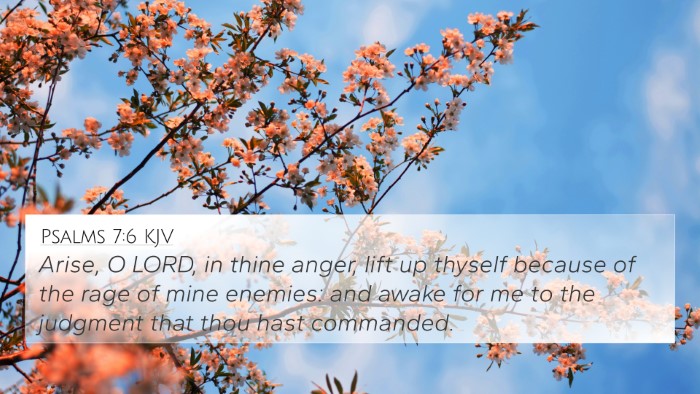Psalms 82:8 - Interpretation and Meaning
Psalms 82:8 reads: "A rise, O God, judge the earth: for thou shalt inherit all nations." This verse encapsulates themes of divine justice and authority. Below, we explore its meaning through insights derived from various public domain commentaries.
Insights from Matthew Henry
Matthew Henry emphasizes the appeal for God to take action in judging the earth. His commentary points out that the psalmist acknowledges God’s sovereignty and the necessity for divine intervention against injustices. The call for God to 'arise' indicates a plea for His presence and active involvement in the world to rectify wrongs and uphold righteousness.
Insights from Albert Barnes
Albert Barnes interprets this verse as a declaration of God’s ultimate authority over all nations. He comments on the inherent assurance that God will inherit the earth and all its peoples, suggesting that despite current evils and corruptions, God's reign is assured. He connects this verse with the idea of God’s judgment being necessary for the reign of truth and justice, hinting at a future time of divine restoration.
Insights from Adam Clarke
Adam Clarke adds that the psalmist is presenting a fervent prayer that God should act as the ultimate judge. Clarke emphasizes God's role as the defender of the weak and oppressed, urging the faithful to place their trust in God’s righteous judgment. He reflects on the eschatological implications of this verse, suggesting that it points to the time when God will reclaim sovereignty over the nations.
Thematic Connections and Cross-References
Psalms 82:8 can be interconnected with several other Bible verses that highlight themes of judgment, divine authority, and restoration:
- Psalm 47:2: "For the Lord most high is terrible; he is a great King over all the earth."
- Isaiah 2:4: "And he shall judge among the nations, and shall rebuke many people."
- Revelation 20:4: "And I saw thrones, and they sat upon them, and judgment was given unto them."
- Matthew 25:31-32: "When the Son of man shall come in his glory... and before him shall be gathered all nations."
- Jeremiah 10:7: "Who would not fear thee, O King of nations?"
- Romans 14:10: "For we shall all stand before the judgment seat of Christ."
- Philippians 2:10: "That at the name of Jesus every knee should bow, of things in heaven, and things in earth, and things under the earth."
- Daniel 7:14: "And there was given him dominion, and glory, and a kingdom, that all people, nations, and languages, should serve him."
Understanding Through Cross-Referencing
Engaging with cross-referenced Bible verses aids in deepening our comprehension of Psalms 82:8. Here are some major themes derived from the verse and its connections:
- Divine Authority: The call for God to rise reflects an acknowledgment of His supreme authority over the earth.
- Judgment: The verse highlights God's role as judge, a recurring theme seen throughout the Scriptures.
- Hope and Restoration: The assurance that God will inherit all nations speaks to themes of hope, redemption, and restoration.
- Intercession: This verse serves as an intercessory prayer for divine justice in a world fraught with inequities.
- Eschatological Promises: The expectation of God's ultimate judgment suggests a future time when divine justice will prevail.
Conclusion
Psalms 82:8 serves as a powerful reminder of God’s justice and His rightful sovereignty over all creation. The insights from Matthew Henry, Albert Barnes, and Adam Clarke enhance our understanding of this verse, revealing the depth of its meaning. By cross-referencing related scriptures, we can see a more intricate tapestry of God’s promise to judge the earth and inherit the nations.
For those seeking understanding, tools for Bible cross-referencing—such as a Bible concordance or Bible cross-reference guide—can facilitate a deeper study and reveal more connections between these vital themes across the Scriptures.
